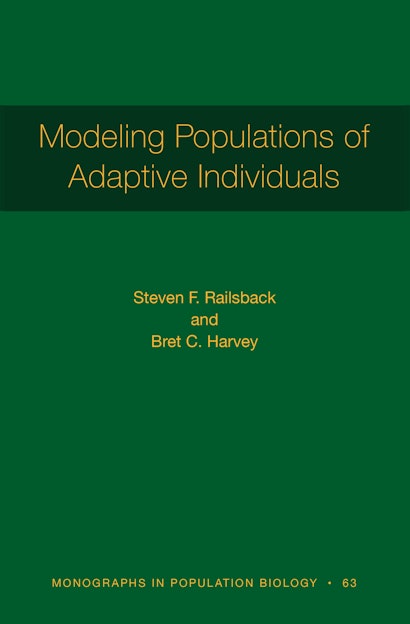Ecologists now recognize that the dynamics of populations, communities, and ecosystems are strongly affected by adaptive individual behaviors. Yet until now, we have lacked effective and flexible methods for modeling such dynamics. Traditional ecological models become impractical with the inclusion of behavior, and the optimization approaches of behavioral ecology cannot be used when future conditions are unpredictable due to feedbacks from the behavior of other individuals. This book provides a comprehensive introduction to state- and prediction-based theory, or SPT, a powerful new approach to modeling trade-off behaviors in contexts such as individual-based population models where feedbacks and variability make optimization impossible.
Modeling Populations of Adaptive Individuals features a wealth of examples that range from highly simplified behavior models to complex population models in which individuals make adaptive trade-off decisions about habitat and activity selection in highly heterogeneous environments. Steven Railsback and Bret Harvey explain how SPT builds on key concepts from the state-based dynamic modeling theory of behavioral ecology, and how it combines explicit predictions of future conditions with approximations of a fitness measure to represent how individuals make good—not optimal—decisions that they revise as conditions change. The resulting models are realistic, testable, adaptable, and invaluable for answering fundamental questions in ecology and forecasting ecological outcomes of real-world scenarios.
Steven F. Railsback is adjunct professor of mathematics at Humboldt State University and a consulting ecologist. His books include Individual-based Modeling and Ecology and Agent-Based and Individual-Based Modeling (both Princeton). Bret C. Harvey is an aquatic ecologist with the US Forest Service and adjunct professor of fisheries biology at Humboldt State.
"[A] welcome addition to the esteemed monographs in [the] Population Biology series from Princeton University Press."—Darcy Visscher, The Quarterly Review of Biology
"Freeing trade-off decision theory from previous unrealistic assumptions of global optimality, Railsback and Harvey offer a user's guide for others to build models detailed enough to use for real management but sufficiently mechanistic to predict system responses under new circumstances. Their theory is a major advance in ecology for upscaling from individuals to populations, and beyond to community and ecosystem consequences. This book is critical for understanding and managing real organisms as they and we confront a heterogeneous and increasingly fluctuating world."—Mary E. Power, University of California, Berkeley
"Railsback and Harvey provide a consistent approach to the ecological challenge of moving from individual behavior to population-level responses. Those who develop and evaluate individual-based models will find this insightful book to be a useful guide to characterizing the individual behavioral rules that account for the inherent trade-offs real organisms make."—Louis J. Gross, University of Tennessee, Knoxville
"The effects of decision making by individual organisms on populations and communities has become a major topic in ecology, one that has developed extraordinarily rapidly in the past two decades. Railsback and Harvey provide a comprehensive theoretical foundation for incorporating these processes into ecological models, showing how such modeling can be very powerful across key areas of ecology."—Donald L. DeAngelis, coauthor of Mathematical Models of Plant-Herbivore Interactions

